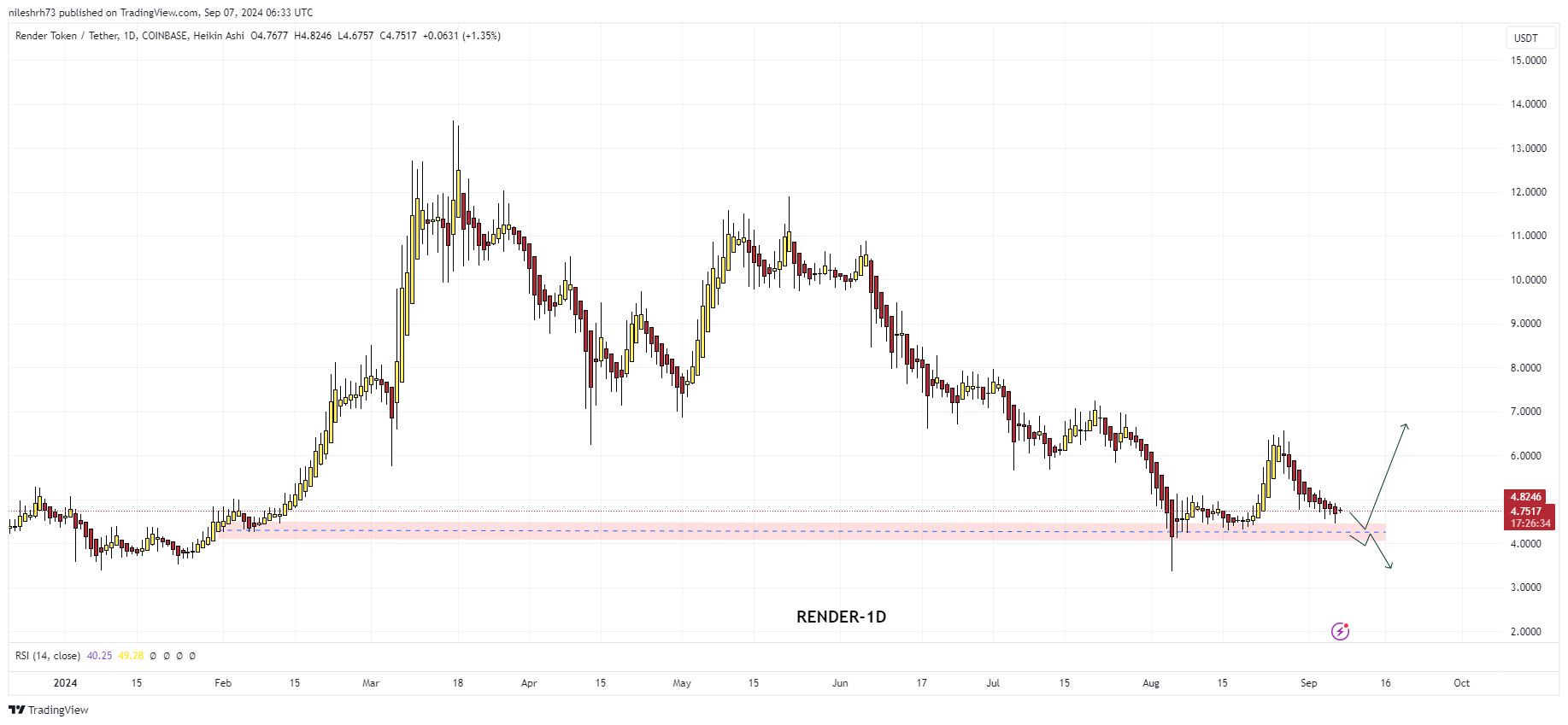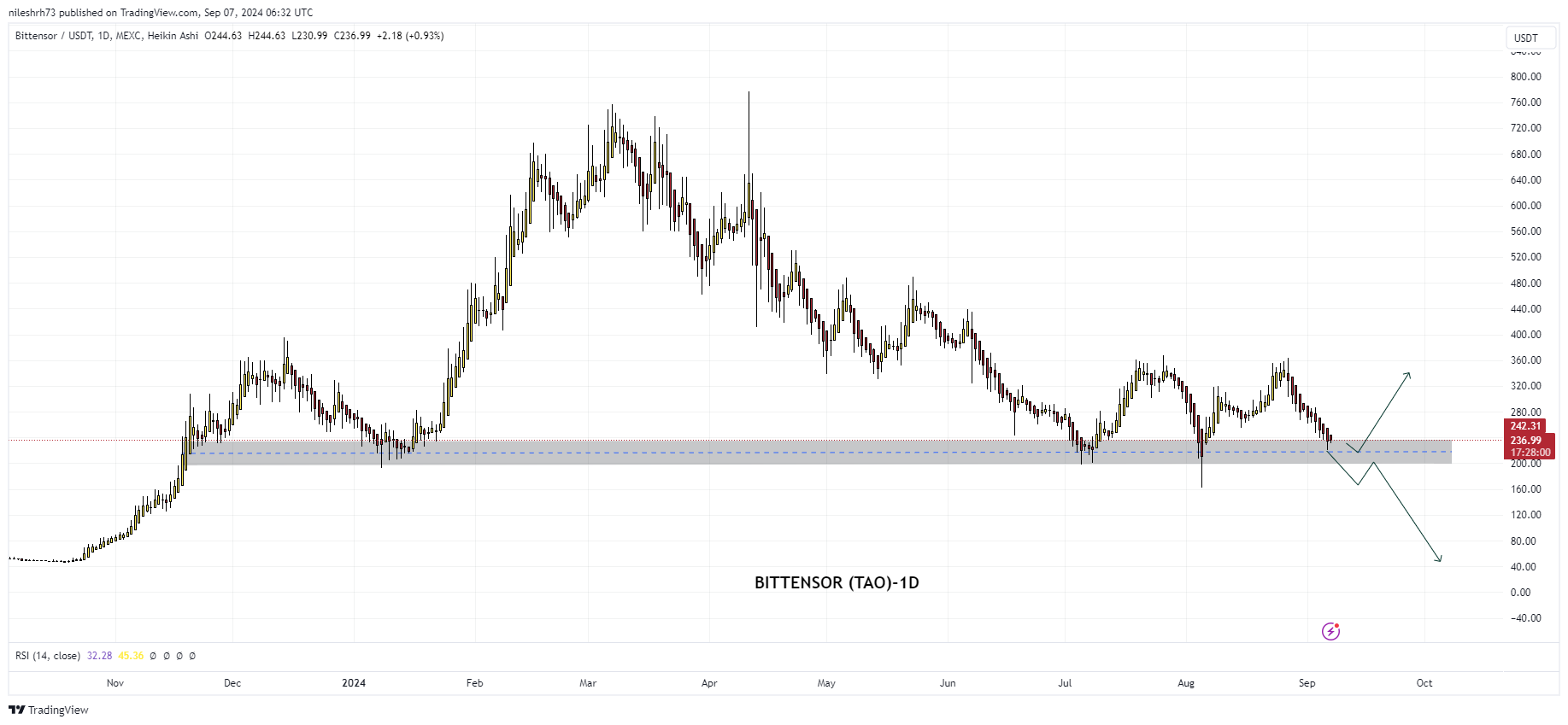Date: Sat, Sept 07, 2024, 06:38 AM GMT
The past week has been rough for the cryptocurrency market, especially for AI-focused tokens like Render (RENDER), Bittensor (TAO) and Artificial Superintelligence Alliance (FET). These tokens have faced significant losses over the last seven days, largely driven by a sharp decline in Nvidia’s shares.
On September 3rd, Nvidia’s stock took a major hit, dropping over 9% and wiping out $280 billion in market value. This crash sent ripples across the market, negatively impacting AI-related cryptocurrencies. In addition, Bitcoin’s ongoing price decline has further fueled the bearish sentiment. Bitcoin’s current price stands at $54,000, down from its monthly high of $59,000.
This downward momentum has brought several AI tokens close to their key support levels:
1. Render (RENDER):
Over the past week, RENDER has dipped by 8.13%, bringing its price to $4.81. It’s now trading near a crucial support level at $4.27.

2) Bittensor (TAO):
TAO has seen a significant drop of 15.76% in the last seven days, currently trading at $242.36, close to its support level of $219.00.

3) Fetch.ai (FET):
FET has also experienced a decline, losing 10.59% of its value and settling at $1.06, which coincides with its key support level.

Will They Hold or Break?
The broader market conditions, particularly the continued decline of Bitcoin, could challenge these AI tokens ability to hold their support levels. With some experts predicting Bitcoin may drop further to $49,000, the pressure on these tokens could intensify, potentially leading to a downturn. However, if they manage to hold their ground at these support levels, there could be a bullish recovery rally on the horizon, offering a potential upside for investors.
Keep an eye on these critical levels as the market navigates this challenging period.
Disclaimer: The information provided in this article is for informational purposes only and should not be considered financial advice.

